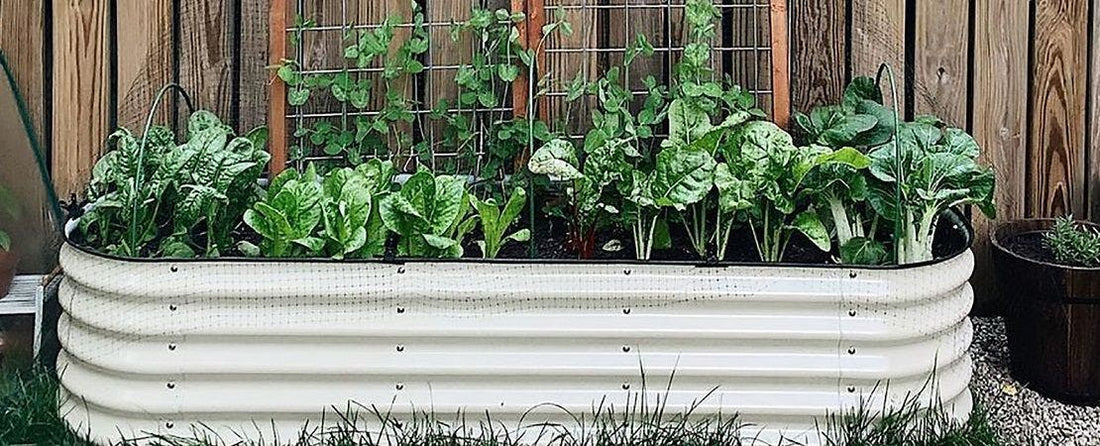
Benefits of Raised Bed Gardens
Share
Explore the benefits of raised bed gardening, plus, recommendations for what to plant.
Are you looking to enhance your gardening experience, maintain your seeds and plants more comfortably, and optimize the growth of your vegetables and flowers? Look no further than raised bed gardens.
Gardening in raised beds is a fantastic choice for convenient and comfortable gardening. From improved soil quality to better pest control, raised bed gardens offer benefits that can help you achieve a thriving and bountiful garden.
Enhanced Soil Quality
One of the primary advantages of raised bed gardens is the ability to control and improve the quality of your soil. With raised beds, you have the freedom to customize the soil composition to suit the specific needs of your seeds and plants. You can create an ideal blend of organic matter, compost, and other nutrients to provide your plants with optimal growing conditions. This promotes healthier root development and increases nutrient availability, resulting in vibrant and productive plants.
Efficient Drainage and Water Management
Proper drainage is crucial for the success of any garden. Raised bed gardens excel in this aspect by providing excellent drainage abilities. The elevated nature of the beds allows excess water to flow away easily, preventing waterlogging and the associated risks of root rot and plant disease. Additionally, raised beds allow for efficient water management, minimizing water waste and ensuring that your plants receive the appropriate amount of moisture.
Weed Control
Dealing with weeds is an ongoing task for any garden. Fortunately, raised bed gardens offer a practical solution. By raising your garden above ground level, you can significantly reduce weed growth and invasion. The confined space of a raised bed makes it easier to control weeds, saving you valuable time and energy. Additionally, the use of weed barriers or landscape fabric can provide an extra layer of defense against weed infiltration.
Pest Management
Protecting your plants from pests can be a challenge for gardeners. However, raised bed gardens can provide an advantage in pest management. The elevated structure makes it more difficult for pests, such as slugs and snails, to access your plants. In addition, you can implement physical barriers like netting or covers to safeguard your garden from insects and small animals. By minimizing pest damage, raised bed gardens contribute to healthier and more productive crops.
Extended Growing Season
Raised bed gardens have the potential to extend your growing season. The soil in raised beds tends to warm up faster in the spring, allowing for earlier planting and seed germination. Additionally, you can utilize season-extending techniques like row covers or cloches to protect your plants from frost, enabling you to enjoy fresh produce for an extended period.
Popular Seeds and Plants for Raised Bed Gardens
Are you curious about which types of seeds and plants thrive in a raised bed garden? We’ve listed some of the best and most popular seeds for thriving in this environment.
Leafy Greens: Spinach, lettuce, kale, and Swiss chard flourish in raised beds, benefiting from the improved soil quality and easy harvest accessibility.
Herbs: Culinary herbs like basil, parsley, thyme, and rosemary are well-suited for raised bed gardens, allowing for convenient picking and ensuring a continuous supply of fresh herbs.
Root Vegetables: Carrots, radishes, beets, and potatoes perform exceptionally well in raised beds, as the loose soil promotes root development and prevents stunted growth.
Compact Vegetables: Bush varieties of cucumbers, tomatoes, peppers, and zucchini are great choices for raised bed gardens due to their compact growth habit and ease of maintenance.
Raised bed gardens have lots of benefits for gardening enthusiasts. From improved soil quality and efficient drainage to enhanced pest control and extended growing seasons, the advantages of raised bed gardening also include easier access for every age and ability of gardener.